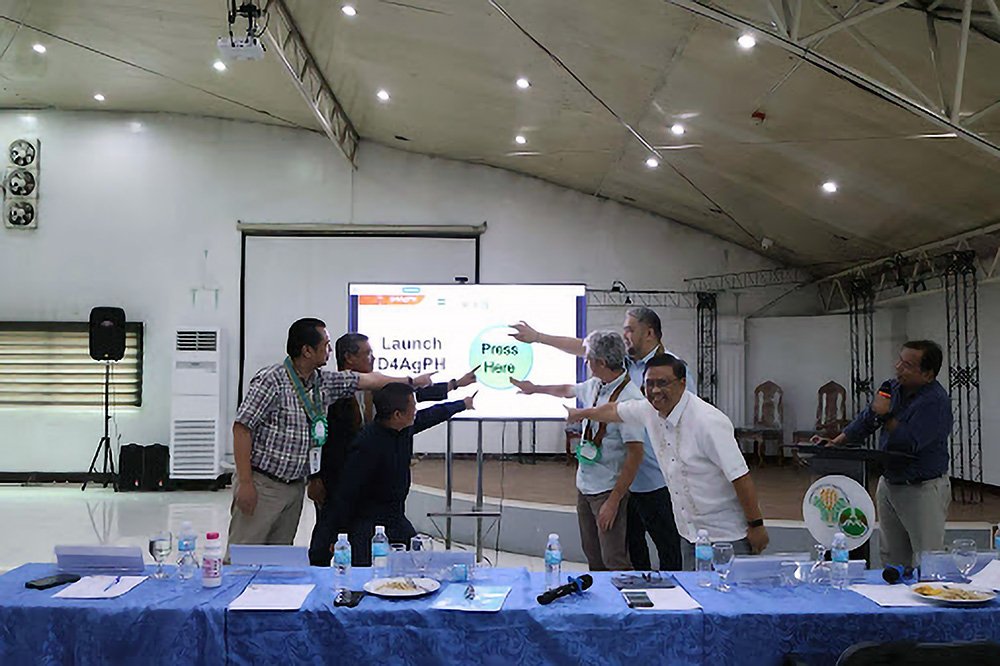Thursday, 19 February 2026

An integrated public online platform designed to promote and strengthen data-driven decision-making on the country’s rice-based agri-food systems.
The Department of Agriculture – Bureau of Agricultural Research (DA-BAR) and International Rice Research Institute (IRRI) launched an online platform that consolidates active digital agriculture tools and services (DATS) and their distribution in the Philippines’ agri-food value chain. The development of the D4AgPH platform was funded by DA-BAR.
An integrated public online platform designed to promote and strengthen data-driven decision-making on the country’s rice-based agri-food systems, D4AgPH came as a result of an IRRI-led national assessment and inventory of existing DATS. The assessment aimed to understand the country’s digital agriculture landscape and use collected data and insights to help support the DA’s digital transformation strategy, as outlined in the 2023-2028 MASAGANA Rice Industry Development Program (MRIDP).
“MRIDP highlights digital transformation as a cornerstone towards the upliftment of the sector. Despite advancements, there remains a gap in the distribution and availability of digital tools. D4AgPH is a crucial strategy for attaining sustainable agricultural development and likewise ensures that our farmers are equipped with appropriate tools,” DA Undersecretary for Rice Industry Development, Engr. Christopher Morales stated.
The online platform features an intuitive, user-friendly and responsive interface providing users with 1) a searchable facility to view the list of DATS and detailed information, 2) an interactive analytics facility to generate insights on the distribution of DATS in the agri-food value chain, and 3) data entry facility to allow innovators/developers to share their DATS, making the platform a hub of innovation and dissemination. Currently, the database hosts 67 DATS grouped according to several use cases. Mapping the distribution of the DATS across the agri-food value chain shows 61 per cent are specifically tailored to address challenges and opportunities related to crop production and more than 30 per cent, focused on production and inputs, were developed and maintained by government agencies such as PhilRice, Bureau of Plant Industry, and other DA agencies.
In terms of maturity level, 50 per cent are ready for further expansion, 19 per cent are in the pilot stage, and 29 per cent are ripe for commercialization. Mobile applications also emerged as the predominant distribution channel through which users access the DATS.
“Many new digital tools are coming online these days which poses so many opportunities. This D4AgPH is a great start; it provides us with a mechanism that will help us to prioritize and identify effective tools as well as partners that we can collaborate with,” said IRRI Senior Scientist for Digital Agriculture and Precision Farming, Engr. Stephen Klassen.
IRRI likewise scanned and mapped out the DATS against several scaling “ingredients” across 10 fields, to identify strong and weak spots that can inform developers and project implementers on changes or updates needed for successful scaling. The scaling scan shows that most of the DATS were strong in terms of their technology, user awareness and demand, finance mechanisms, and knowledge and skills. Some identified gaps include the need for more effective monitoring and evaluation processes and evidence generation, more effective links that bridge supply and demand, and strategic collaboration within and beyond the sector to scale the innovations.
DA-BAR hopes that the platform can help key decision-makers, local agriculture officers, and farmers leverage collected data among DATS to strengthen the country’s digital agriculture community.
“D4AgPH opens new avenues for dialogue and knowledge exchange and likewise lays the foundation for a more resilient and inclusive agricultural sector. This reaffirms a shared commitment to strengthening the country’s digital technologies and evidence-based policymaking to build a more sustainable future for our farmers and communities,” said DA-BAR Director Junel Soriano.